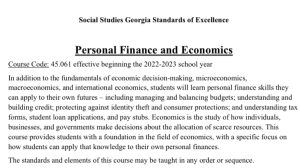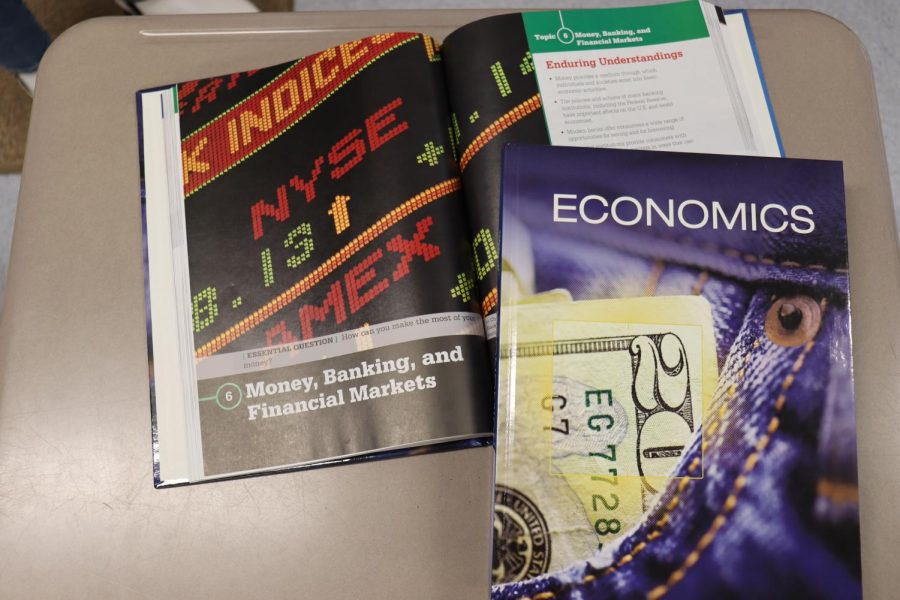Economics standards change for 2022-2023 school year
Legislation has been passed to change the current economics curriculum to personal finance and economics. This change goes into effect for the 2022-2023 school year.
February 28, 2022
Georgia has passed a change to the economic standards.
Currently, economics is equal parts microeconomics, macroeconomics, fundamentals, international trade, and personal finance. Under the new standards, personal finance will become half of the overall curriculum for the state-required course.

With this change also comes a new name for the class, Personal Finance, and Economics. The change will go into effect for the 2022-2023 school year.
“We are not against teaching personal finance, but we want high school seniors to have a well-balanced education next year, and that includes personal finance but that’s not only exclusively personal finance,” Starr’s Mill economics teacher Walt Ellison said.
One of the biggest concerns surrounding this change is that many students will be taking an economics class in college, and without a full economics class in high school, they will be underprepared.
“There is a potential to know less about inflation, current events, and other important things about how the world works,” Georgia Council of Economic Educators associate director and chief program officer Chris Cannon said. “Even if [colleges] don’t require it the basic foundational knowledge that comes from an economics course, that decision making and understanding of scarce resources its a lot of applications [of prior knowledge from the econ class] no matter what you’re majoring in, and [without it] will mess students up.”
GCEE has expressed disapproval with the changes and there not being more support from the Department of Education to push for more economics or to have both classes.
Originally they were disappointed by the Department of Education because they had wanted schools to choose between personal finance and economics which would do students a disservice. Yet, they were supportive of the GCEE finding a meet-in-the-middle solution, which is how you get a half and half class.
Some students are happy about the change if they have a deeper interest in personal finance, furthering the suggestion of having two separate classes so students can fully experience both.
“I personally think that splitting the class in half and incorporating personal finance wouldn’t hurt students taking Economics later in college,” Marianna Williams, a student who is taking economics this semester, said. “I think it honestly would help students succeed in life and economics in college since they would have a greater understanding of money and how to manage it. Splitting the class would be a great opportunity for students to learn how to manage money, and how the world runs because of money.”
Fayette County social studies curriculum coordinator Dr. Becky Ryckeley did not respond to our requests for comment.
To view these changes and the new standards, parents and teachers can visit GAstandards.org.





